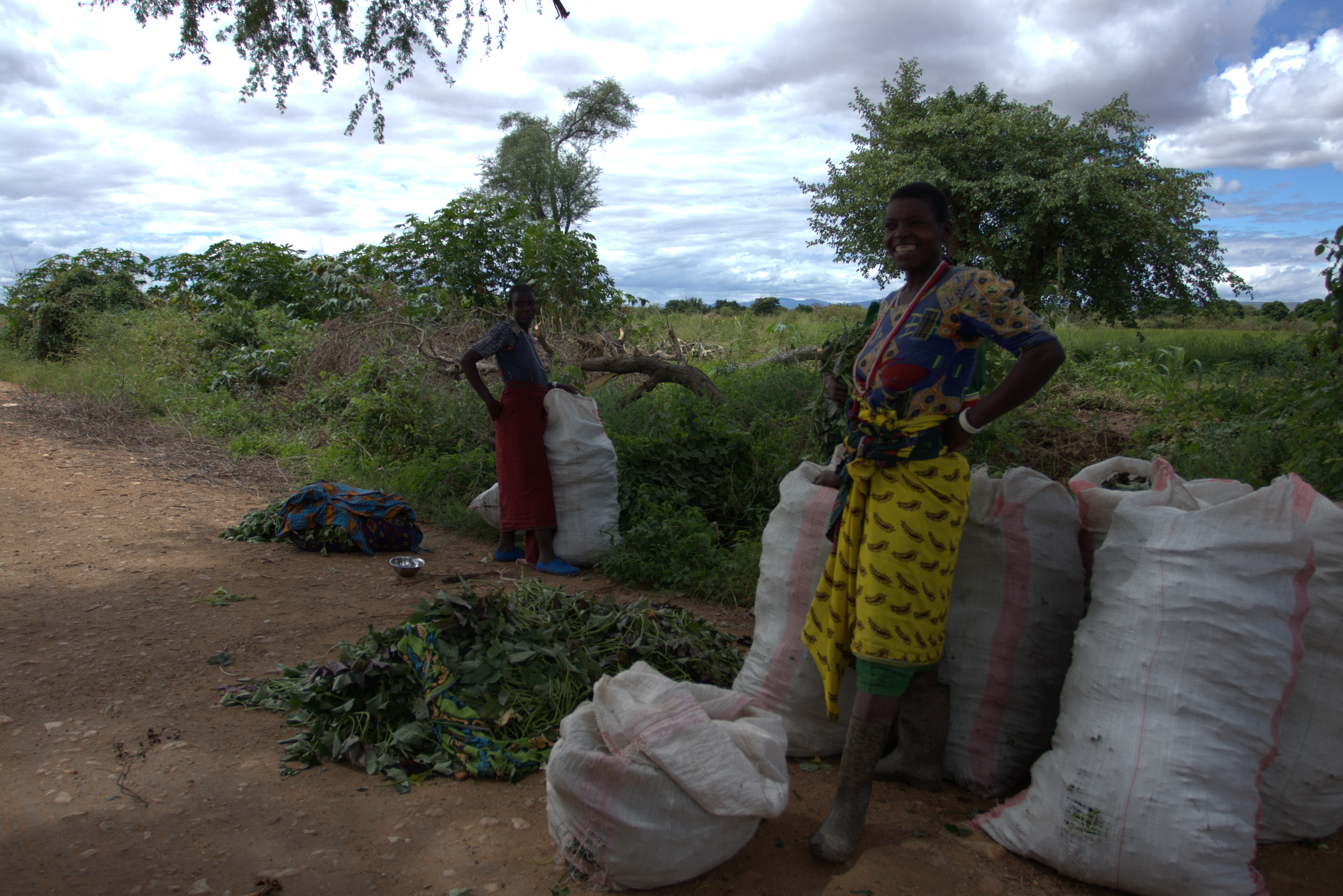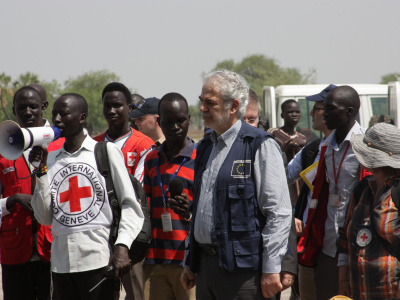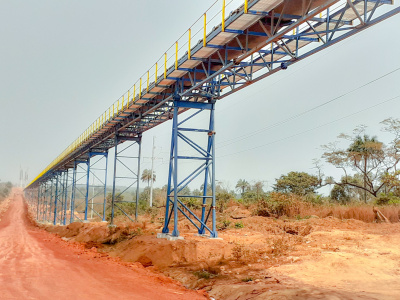
Mozambique at a Turning Point: From Aid Dependence to Development Effectiveness?
Mozambique is considered a success story of post war reconstruction and economic reform. Since the end of the civil war in 1992 the country has benefited of several debt relief initiatives and of huge amounts of Official Development Assistance (ODA), hosting one of the largest donors’ joint programmes in Africa, both in terms of volume and donor agencies involved.
Until very recently a “donors darling” heavily dependent on external aid, Mozambique is rapidly reducing its aid dependence, mainly due to increasing mining royalties on one side, and squeezed aid budgets on the other (1). In 2011, foreign direct investment (FDI) has roughly equalled total ODA to Mozambique, doubling to US$2 billion from US$1 billion in the previous year. A sharp rise in FDI is expected for the years to come, mainly from South Africa, China, Brazil, India and Australia: Brazil’s mining giant Vale has announced investments for US$6 billions, while the World Bank estimates that, by the end of this decade, gas projects could bring as much as US$70 billion.
In 2011, external finance of the State budget has dropped to 44.6% against 51.4% in 2010 and it is expected that foreign aid will contribute for 39.6 % of public expenditure in 2012 and 32,8% in 2013 (2). A substantial support to the State budget is provided Programmatic Aid Partners (PAPs), which in 2011 have channelled more or less US$1,7 billions in grants and loans. Notwithstanding the efforts by traditional and new development partners, total ODA to Mozambique has stagnated at more or less US$2 billion during the last three years and the Economist Intelligence Unit’s projections indicate that, by 2017, mining revenue will have become substantially larger than donors support. The reduction of aid dependence and the geopolitical changes associated to the mining boom pose new challenges to the Government, as much as to Mozambique’s development and commercial partners.
Programmatic aid and budget support in Mozambique
Since the 1990s, Mozambique has become a reference for the provision of programmatic aid, with increasing proportions of ODA channelled through the State budget. Development partners have substantially contributed to the budget of Mozambique, particularly financing the expansion of social infrastructure. In an attempt to enhance national ownership and results-based management, PAPs have progressively harmonized their development support and aligned it to domestic planning, budgeting and monitoring frameworks.
After a banking crisis led to a suspension of budget support in 2001, Government and partners agreed on the need for a more transparent and structured approach to programmatic aid. In 2004, a Memorandum of Understanding (MoU) was signed between PAPs and the Government of Mozambique (GoM), setting out the principles, terms and operations for the provision of budget support. Thanks to encouraging results in poverty reduction, the number of partners adhering to the General Budget Support (GBS) programme gradually increased and a second MoU was signed in 2009, between the GoM, the group of 19 donors providing GBS – the G19 – and their associate members – the United Nations and the United States. Mutual accountability mechanisms were progressively created to track and report on performance, with indicators defined as to keep to contracting parties accountable on agreed commitments (3).
Challenges in the provision of budget support
The rationale for channelling aid through budget support is to provide efficient and effective financial assistance to the implementation of national poverty reduction policies, while reducing the transaction costs linked to aid management. The GoM’s international cooperation policy identifies GBS as the preferred aid modality, followed by Sector Budget Support (SBS) and project aid (4). GBS is generally seen as the “purest” way of achieving the goals of the Paris Declaration on aid effectiveness, but a strong focus on this aid modality has probably led to a narrowing of the debate on aid effectiveness in Mozambique. In fact, PAPs’ Performance Assessment Framework (PAF) only covers the G19 and associates, leaving aside Japan, vertical funds and non-traditional donors like Brazil, thus reducing the inclusiveness of the development partnership.
Within a complicated but not sufficiently inclusive aid architecture (5), over time the management of the GBS programme has resulted in increasing transaction costs. Political and technical dialogue mechanisms structured along several layers, high donors staff turnover and not always efficient information flows seem to have progressively diluted the effectiveness of PAPs’ support. It is in fact widely recognised that the complexity of the partnership has led to an excessive focus on processes, weakening PAPs’ capacity and engagement with collective action.
In addition, poverty monitoring is proving increasingly challenging due to data availability and quality. Progress in social indicators is considered fairly positive, but no standardised results monitoring frameworks are in place, for instance on public service delivery. The GoM’s PAF is deemed too rigid and unable to measure real progress on long-term outcomes and impacts in poverty reduction, while results have recently been below the expectations. Notwithstanding growth rates above 7% in the last ten years, Mozambique’s competitiveness, governance and human development are stalling or declining in relative terms(6), and according to the last household survey, poverty has been stagnating between 2005 and 2009, having gotten worse in some provinces.
Lack of progress on poverty reduction and governance, financial mismanagement occurrences and internal organisational inefficiencies have recently created a widespread feeling of “aid fatigue” among PAPs. Budget support is being heavily criticized by several Mozambican and international civil society organisations and think tanks, for strengthening external at detriment of domestic accountability and for reinforcing the ruling party.
Revisiting budget support in Mozambique?
These factors as much as internal political decisions in donor countries have gradually undermined the predictability of external support. In the first quarter of 2010, increasing concerns over governance led to a suspension of GBS, when, through temporarily freezing of disbursement, the G19 secured specific commitments on governance reforms. The creation of a parallel assessment framework on key policy reforms following the first “donors strike” was perceived as an undue conditionality by the GoM. Dialogue has resumed thereafter, but several members of the G19 have decided to attach a variable tranche mechanism to their decisions on GBS disbursements.
Because of high fiduciary risk and the economic slowdown in several donor countries, GBS is becoming less attractive for several members of the G19. The Netherlands and Belgium have formalized their decision to abandon GBS starting from 2013, while due to budgetary constraints Spain will not be able to disburse already this year. For other members of the (former?) G19, such as Germany and Sweden, internal procedures for commitments on GBS are becoming increasingly complex and demanding.
With the exit of some members of the G19 and appearance of new donors and commercial partners of the GoM, the development partnership has come to a turning point in Mozambique. The progressive reduction of aid flows and current transition to a resource-based growth model pose several challenges to the GoM, as much as to development partners and the private sector. Mozambique’s third poverty reduction strategy (PARP 2011-2014) focuses on enhancing agricultural production and productivity, fostering broad-based employment creation and supporting human and social development. These objectives will have to be prioritised by the GoM and PAPs, notwithstanding bilateral commercial interests and the emergence of mining and hydrocarbons as new dominant sectors.
According to IMF estimates, over a five-year timeframe investment projects in the mining sector could contribute to 12-13% of GDP (against 3% in 2011), while the contribution of ODA would drop to between 2 and 1,5% of GDP. The development of the extractive sector poses serious challenges to the donor communities and to the Government.
Besides improving the infrastructure upon which the mining boom depends, the GoM needs to progressively shift its policy towards natural resource management. At the same time, the GoM will have to promote linkages between local companies and mining and hydrocarbon projects, and to improve the delivery of social services, reducing the existing skill gaps in order to create jobs.
The extractive industries are capital intensive and they have accounted for approximately 1% of employment and 7% of exports in 2011. Due to tax exemptions, their contribution to total tax revenue has been limited so far (1% in 2011), even if tax revenue from coal is expected to increase significantly as to 2015, while those from gas will materialize only after 2022.
Becoming heavily reliant on foreign investment for financing infrastructure and resource extraction, Mozambique will face risks similar to those associated with aid dependence. Over the medium term, it is expected that the fiscal deficit (6,7% of GDP in 2012) will reduce slowly, being mainly financed by non concessional borrowing abroad and domestic bond issues, thus any unexpected decline in donor support or a prolonged commodity price shock would put government finances under stress.
Notwithstanding the fast transition towards a mineral economy, analysts agree that ODA will remain relevant in Mozambique over the medium term. In a rapidly changing international and domestic context, the sustainability of PAPs support to poverty reduction goes hand in hand with their capacity to show continuity in their commitments, and change readiness at the same time.
Reforming budget support mechanisms through an increased focus on results is a necessary step towards a more effective development partnership in Mozambique. The PAPs should engage in an open debate on the future of aid and of a more inclusive development model in Mozambique, involving new donor countries, central and local representative institutions, domestic and international civil society organisation and private sector companies. The independent budget support evaluation planned for 2013 will bring about evidence and hopefully help bilateral and multilateral partners, to define a medium to long term individual and collective (dis)engagement strategy, also in view of the preparation of the next MoU.
As stated in the Busan Partnership for effective development cooperation, total transparency in the use of public funds should be promoted and accountability mechanisms reinforced at all territorial levels. Mozambique’s recent full compliance with the Extractive Industries Transparency Initiative (EITI) has sent a positive signal to investors and donors, but the publication of payments will not in itself bring about good revenue management and distribution. Social and environmental impacts of mineral and hydrocarbon development projects should be continuously scrutinized, also enhancing citizens’ participation in monitoring the quality of public services. Infrastructural projects and the effects of trade liberalisation and regional integration should be analysed taking into consideration the transformative potential for the domestic economy, particularly in relation to job creation.
PAPs have a moral obligation to support Mozambique in the ongoing transition, towards their constituents as much as the people of Mozambique. Besides strengthening national capacity and institutions towards achieving inclusive and sustainable growth, in the near future PAPs will have to work with other donors, international institutions, and other actors at the country and global levels to ensure integrity in public administration, particularly in relation to natural resource use, contract arrangements and financial markets. Fostering international cooperation and collective action, and capitalizing on the knowledge and skills accumulated so far, in collaboration with new development and commercial partners PAPs could effectively contribute to a success story in phasing out from aid dependence.
Francesca Bruschi is a Consultant at the Italian Cooperation’s General Budget Support Programme in Maputo
Footnotes
1. Economist Intelligence Unit, Country Report Mozambique, October 2012: www.eiu.com (restricted access).
2. This decrease is also a consequence of the appreciation of the national currency, as the value of the national currency (Metical) has been rising over the last two years, meaning that foreign aid has dropped if relation to the national currency, even though it may have risen in foreign currencies.
3. GoM's performance is annually assessed against a set of indicators measuring progress in poverty reduction, while PAPs are assessed against the implementation of the aid effectiveness agenda.
4. Through GBS, US$523 million have been directly channelled to Mozambique in 2011, US$459 in 2010, US$488 and in 2009, while SBS totalled US$303 USD million in 2011, US$331 in 2010 and US$361 in 2009.
5. A larger dialogue group between the GoM and partners – “the Development Partners Group” – was created, working as an information-sharing group rather than a coordination mechanism.
6. See the Doing Business 2013 by the World Bank, the Global Competitiveness Index by the World Economic Forum, the 2012 Ibrahim Index of African Governance and UNDP’s Human Development Index, where Mozambique ranked 184 out of the 187 countries considered.
This article was published in Great Insights Volume 1, Issue 10 (December 2012)




